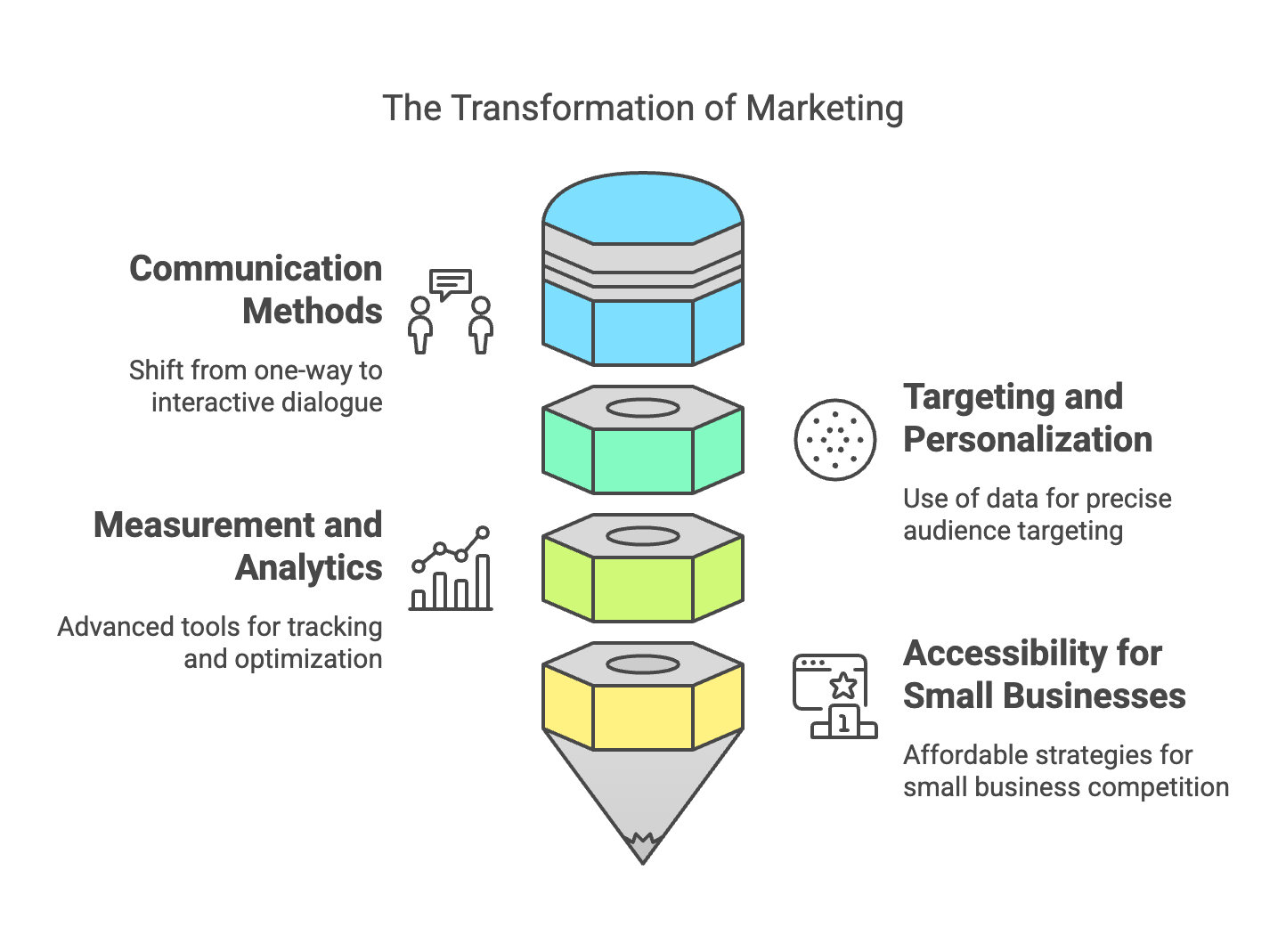Introduction: How Digital Technologies Transformed Marketing
The way businesses market themselves has undergone a radical transformation thanks to the rise of digital technologies. Forget billboards and print ads – today, it's all about connecting with consumers online where they spend most of their time. This shift has not only changed how brands interact with their audience, but also who they can reach and how much they can measure the impact of their efforts.
Here's a glimpse of some key ways digital technologies have revolutionized marketing:
1. From One-Way to Two-Way Communication:
- Traditional Marketing: Primarily a one-way street. Businesses pushed out messages and hoped they resonated. Think TV commercials, radio jingles, and print ads.
- Digital Marketing: Opens a dialogue. Consumers engage with brands online, providing feedback, sharing content, and actively participating in the brand's story. Social media, online reviews, and interactive websites are prime examples.
2. Targeted Reach and Personalization:
- Traditional Marketing: Often relied on broad demographics and mass appeal, leading to wasted resources on uninterested audiences.
- Digital Marketing: Leverages data and analytics to precisely target specific customer segments. This allows for personalized messaging and offers tailored to individual needs and preferences.
3. Measurable Results and Data-Driven Decisions:
- Traditional Marketing: Notoriously difficult to measure ROI (Return on Investment). How many people actually bought that product after seeing the billboard?
- Digital Marketing: Offers sophisticated analytics and tracking tools. Marketers can monitor website traffic, social media engagement, conversion rates, and more, enabling data-driven decisions and continuous optimization.
4. Leveling the Playing Field for Small Businesses:
- Traditional Marketing: Often favored large corporations with bigger budgets for expensive campaigns.
-
Digital Marketing: Provides affordable opportunities for small businesses to compete. Social media marketing, content marketing, and search engine optimization (SEO) can be highly effective without breaking the bank.
 In conclusion, digital technologies have democratized marketing, empowered consumers, and ushered in an era of unprecedented precision and measurability. This dynamic landscape requires marketers to be adaptable, data-savvy, and customer-centric to thrive.
In conclusion, digital technologies have democratized marketing, empowered consumers, and ushered in an era of unprecedented precision and measurability. This dynamic landscape requires marketers to be adaptable, data-savvy, and customer-centric to thrive.

No Comments